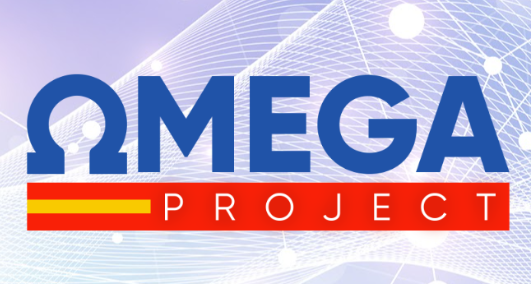
The Omega Project by Aidan Booth and Steve Clayton: Revolutionizing E-Commerce or Just Another Hype? As an e-commerce veteran with over a decade of experience, I’ve seen countless programs promising to transform online business. The Omega Project, set to launch in January 2025, is the latest to catch my attention.
The Omega Project by Aidan Booth and Steve Clayton, this program claims to change e-commerce.
But does it truly offer a breakthrough, or is it simply riding the wave of hype? The Omega Project Review is here to help.
*This post contains affiliate links, meaning I may earn a commission at no extra cost to you if you make a purchase through these links. Thank you for supporting my work.*
Understanding The Omega Project
The Omega Project is built on what Aidan Booth and Steve Clayton call ‘3-click technology.’ This system aims to simplify the process of setting up and running an online business, making it accessible even to complete beginners. The program leverages automation and artificial intelligence to streamline various aspects of e-commerce, from product selection to traffic generation and conversion optimization.
Users are promised a system that can be operated in just 2-3 hours of spare time, potentially generating significant income. While this prospect is undoubtedly appealing, especially for those looking to start a side hustle or transition away from traditional employment, it’s crucial to approach such claims with a healthy dose of skepticism.
The e-commerce landscape is highly competitive, and success often needs more than just a plug-and-play solution. Implementing such a system comes with it’s own set of challenges that shouldn’t be underestimated.
*This post contains affiliate links, meaning I may earn a commission at no extra cost to you if you make a purchase through these links. Thank you for supporting my work.*
Key Takeaways
- The Omega Project promises simplified e-commerce through ‘3-click technology’, but success likely needs more than just following the system.
- Be prepared for potential pitfalls like market saturation and over-reliance on automation.
- Adapt the system to your unique circumstances and goals, focusing on niche specialization and product customization.
- Use The Omega Project as a starting point for continuous learning and growth in e-commerce.
- Balance automation with personal touch to create a unique and engaging customer experience.
Review By ReviewEngin :
Implementing The Omega Project: A Step-by-Step Approach
While the full details of The Omega Project are yet to be revealed, we can make some educated guesses about how it might work based on Booth and Clayton’s previous programs:
1. Product Selection
The system likely uses AI to identify profitable products across various niches. This could involve analyzing market trends, consumer behavior, and competition to suggest products with high potential for success.
2. Store Setup
The ‘3-click technology’ probably automates much of the process of creating an online store. This might include template selection, product listing, pricing strategy, and even basic branding elements.
3. Traffic Generation
Automated systems for driving targeted traffic to your store are likely a key component. This could involve AI-driven ad creation and management across various platforms, as well as optimization of organic traffic sources.
4. Conversion Optimization
AI-driven tools for improving conversion rates and customer experience are likely to be included. This might involve automated A/B testing, personalized product recommendations, and dynamic pricing strategies.
5. Scaling
The Omega Project likely includes systems for expanding your business once you’ve achieved initial success. This could involve strategies for expanding product lines, entering new markets, or even automating customer service processes.
Each of these steps would typically require significant time and expertise to apply manually. If The Omega Project can truly simplify these processes, it could indeed be a game-changer for many aspiring e-commerce entrepreneurs.

Potential Pitfalls and How to Avoid Them
Despite the promises of easy success, there are several potential pitfalls to be aware of when considering The Omega Project:
Market Saturation
With everyone using the same system, there’s a risk of market saturation. To avoid this, focus on building a unique brand identity.
This involves going beyond the automated suggestions and injecting your own personality and values into your business.
Over-reliance on Automation
While automation can be powerful, it’s important not to lose the human touch. Ensure you’re still providing excellent customer service and building relationships with your audience.
Take time to engage with customers personally, respond to their concerns, and create a community around your brand.
Unrealistic Expectations
Remember that success in e-commerce rarely happens overnight. Be prepared to put in consistent effort over time.
Set realistic goals and celebrate small victories along the way.
Understand that building a successful e-commerce business is a marathon, not a sprint.
Neglecting SEO
Even with automated traffic generation, don’t overlook the importance of organic search traffic. Invest time in creating quality content and optimizing your site for search engines.
This involves researching keywords, creating valuable content, and ensuring your site’s technical SEO is up to par.
Adapting The Omega Project to Different Scenarios
While The Omega Project promises a one-size-fits-all solution, the reality is that different businesses have different needs. Here are some tips for adapting the system:
Niche Specialization
Use the tools provided to identify underserved niches within your area of interest or expertise. Look for gaps in the market where you can offer unique value.
Consider combining multiple niches to create a more specific, less competitive market position.
Product Customization
Don’t rely solely on the AI-suggested products. Look for opportunities to offer unique or customized items.
This could involve partnering with local artisans, creating your own designs, or offering personalization options for existing products.
Local Focus
Consider how you can adapt the system to target local markets, which often have less competition. This might involve creating location-specific content, partnering with local businesses, or offering local pickup options.
Omnichannel Approach
While the program likely focuses on a single platform, explore how you can expand to multiple sales channels for greater reach. This could include selling on social media platforms, marketplaces like Amazon or Etsy, or even through offline channels like local markets or pop-up shops.
Building on the Basics: From Novice to E-commerce Master
The Omega Project is designed to be beginner-friendly, but mastering e-commerce needs ongoing learning and adaptation. Here’s how you can build on the basics:
Understand the Underlying Principles
Don’t just rely on the automated systems. Take time to understand the principles of effective e-commerce.
This includes learning about consumer psychology, marketing strategies, and financial management.
By understanding the ‘why’ behind the ‘what,’ you’ll be better equipped to make strategic decisions for your business.
Stay Updated
The digital landscape is constantly changing. Make a habit of staying informed about industry trends and updates.
Follow e-commerce blogs, attend webinars, and join in online forums.
This will help you anticipate changes and adapt your strategies accordingly.
Network and Collaborate
Connect with other e-commerce entrepreneurs to share insights and potentially collaborate. Join online communities, attend industry events, and consider finding a mentor.
These connections can provide valuable support, advice, and even partnership opportunities.
Experiment and Innovate
Use the foundation provided by The Omega Project to experiment with your own ideas and strategies. Don’t be afraid to try new things, even if they’re not part of the automated system.
This could involve testing new marketing channels, experimenting with product bundles, or developing your own unique selling propositions.
Practical Exercises to Reinforce Your Learning
To truly benefit from The Omega Project, it’s crucial to actively engage with the material. Here are some exercises to help reinforce your learning:
Niche Research
Before the program launches, spend time researching various niches. This will help you hit the ground running.
Start by identifying your passions and areas of expertise.
Then, use tools like Google Trends, social media listening, and keyword research to gauge market demand and competition in these areas.
Brand Development
Start brainstorming potential brand ideas. Even with automation, a strong brand is crucial for long-term success.
Consider your target audience, your unique value proposition, and the personality you want your brand to convey.
Create mood boards, draft mission statements, and sketch logo ideas to bring your brand to life.
Customer Persona Creation
Develop detailed customer personas for your potential target markets. This involves more than just demographic information.
Think about their goals, challenges, preferences, and behaviors.
The more detailed your personas, the better you’ll be able to tailor your offerings and marketing messages.
Competitive Analysis
Research successful e-commerce businesses in your chosen niche. What can you learn from them?
Look at their product offerings, pricing strategies, marketing tactics, and customer engagement.
Identify gaps in their offerings that you could potentially fill.
Content Creation
Practice creating engaging product descriptions and marketing copy. This skill will complement the automated systems.
Start by writing descriptions for products you use daily.
Focus on highlighting benefits as opposed to just features, and practice using persuasive language without being overly salesy.
The Future of E-commerce and The Omega Project’s Role
As we look towards the future of e-commerce, it’s clear that automation and AI will play an increasingly significant role. The Omega Project seems poised to capitalize on these trends, potentially making e-commerce more accessible to a wider range of entrepreneurs.
However, it’s important to remember that technology is just one piece of the puzzle. Successful e-commerce businesses will always need a human touch – the creativity, empathy, and strategic thinking that no AI can fully copy.
The Omega Project could be a powerful tool, but like any tool, it’s effectiveness will depend on how it’s used. Those who approach it with realistic expectations, a willingness to learn, and a commitment to providing real value to their customers will be best positioned to succeed.

Preparing for Launch: What You Can Do Now
As we await the launch of The Omega Project in January 2025, there are several steps you can take to prepare:
- Build Your E-commerce Knowledge Base: Start by learning the fundamentals of e-commerce.
This includes understanding different business models, basic marketing principles, and financial concepts.
- Develop Digital Skills: Familiarize yourself with key digital tools and platforms.
This might include learning the basics of web design, social media marketing, or data analysis.
- Start Market Research: Begin exploring potential niches and products.
Use free tools like Google Trends or social media platforms to gauge interest in different areas.
- Build Your Network: Connect with other aspiring and established e-commerce entrepreneurs.
Join online communities, attend virtual events, and engage in discussions about the industry.
- Practice Financial Management: Start developing good financial habits.
This includes budgeting, tracking expenses, and understanding basic business financial statements.
- Cultivate an Entrepreneurial Mindset: Work on developing traits like resilience, adaptability, and creative problem-solving.
These skills will serve you well regardless of the specific tools or systems you use.
Ethical Considerations in Automated E-commerce
As we embrace automated systems like The Omega Project, it’s crucial to consider the ethical implications. Here are some key points to keep in mind:
Transparency
Be honest with your customers about the automated nature of your business. While you don’t need to disclose every detail, maintaining transparency about your use of AI and automation can help build trust.
Data Privacy
Ensure that any customer data collected through the automated systems is handled responsibly and in compliance with relevant regulations like GDPR or CCPA.
Fair Competition
While automation can give you a competitive edge, avoid using it in ways that could be considered unfair or manipulative. This includes practices like artificially inflating prices or creating fake scarcity.
Quality Control
Don’t let automation compromise the quality of your products or customer service. Regularly review and test your offerings to confirm they meet high standards.
Environmental Impact
Consider the environmental implications of your e-commerce business, particularly if you’re dropshipping. Look for ways to minimize packaging waste and carbon emissions from shipping.
The Role of Continuous Learning in E-commerce Success
The launch of The Omega Project marks an exciting moment in e-commerce, but it’s important to remember that no single tool or system can guarantee success. Continuous learning and adaptation will always be key to thriving in this dynamic industry.
Here are some strategies for ongoing learning:
- Stay Curious: Always be open to new ideas and approaches.
The e-commerce landscape is constantly evolving, and what works today may not work tomorrow.
- Embrace Failure: Don’t be afraid to try new things, even if they don’t always work out.
Each failure is an opportunity to learn and improve.
- Seek Feedback: Regularly ask for feedback from your customers, peers, and mentors.
This can provide valuable insights that automated systems might miss.
- Diversify Your Knowledge: While specializing in e-commerce is important, also try to learn about related fields like psychology, technology, and global trade.
This broader perspective can help you spot opportunities and solve problems more creatively.
- Practice Reflection: Regularly take time to reflect on your experiences and learnings.
This can help you internalize lessons and apply them more effectively in the future.
Balancing Automation and Personal Touch
While The Omega Project promises to automate many aspects of e-commerce, it’s crucial to find the right balance between automation and personal touch. Here are some areas where maintaining a human element can make a big difference:
Customer Service
While chatbots and automated responses can handle many customer queries, make sure there’s always an option for customers to speak with a real person for complex issues or sensitive matters.
Product Curation
While AI can suggest profitable products, use your own judgment and knowledge of your target audience to curate a selection that truly resonates with your brand and customers.
Content Creation
Automated content generation tools can be helpful, but they shouldn’t replace human-created content entirely. Your unique voice and perspective can be a key differentiator for your brand.
Community Building
Engage with your customers beyond just transactions. This could involve hosting virtual events, creating user-generated content campaigns, or simply being active and responsive on social media.
Problem Solving
When issues arise (and they inevitably will), don’t just rely on automated solutions. Be prepared to step in personally to decide complex problems and turn potentially negative experiences into positive ones.

People Also Asked
What is The Omega Project in e-commerce?
The Omega Project is an upcoming e-commerce program developed by Aiden Booth and Steve Clayton, set to launch in January 2025. It promises to simplify online business setup and management using AI and automation.
How does ‘3-click technology’ work in e-commerce?
3-click technology refers to a simplified process for setting up and managing an online store, potentially automating tasks like product selection, store setup, and marketing.
Can beginners use The Omega Project for e-commerce?
The Omega Project is designed to be beginner-friendly, aiming to make e-commerce accessible to those with little to no prior experience in online business.
How much time does it take to run an e-commerce business with The Omega Project?
The creators claim that users can operate their e-commerce business in just 2-3 hours of spare time, though actual time investment may vary based on person goals and circumstances.
Is AI-driven product selection reliable for e-commerce?
AI-driven product selection can be a useful tool, but it’s important to mix it with human judgment and knowledge of your target market for best results.
What are the potential drawbacks of automated e-commerce systems?
Potential drawbacks include market saturation, over-reliance on automation, loss of personal touch, and the risk of neglecting important aspects like SEO and brand building.
How can I prepare for using The Omega Project?
To prepare, you can start building your e-commerce knowledge, develop digital skills, conduct market research, and cultivate an entrepreneurial mindset.
Are there ethical concerns with automated e-commerce systems?
Yes, ethical considerations include maintaining transparency with customers, ensuring data privacy, practicing fair competition, and maintaining quality control.
Can The Omega Project guarantee e-commerce success?
While The Omega Project may provide useful tools and automation, success in e-commerce ultimately depends on various factors including market conditions, your efforts, and your ability to provide value to customers.
How important is continuous learning in e-commerce?
Continuous learning is crucial in e-commerce because of the rapidly changing digital landscape. Staying updated on industry trends and constantly improving your skills can significantly impact your success.